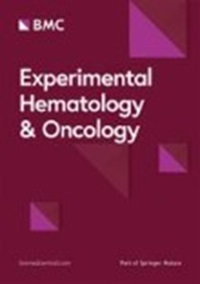MSCsDB: a database of single-cell transcriptomic profiles and in-depth comprehensive analyses of human mesenchymal stem cells
IF 9.4
1区 医学
Q1 HEMATOLOGY
引用次数: 0
Abstract
Mesenchymal stem cells (MSCs) possess multipotent properties that make them promising candidates for immunomodulation and regenerative medicine. However, MSC heterogeneity poses challenges to their research reproducibility and clinical application. The emergence of single-cell RNA sequencing (scRNA-seq) technology has enabled a thorough examination of MSC heterogeneity, underscoring the necessity for a specialized platform to systematically analyze the published datasets derived from MSC scRNA-seq experiments. However, large-scale integration and in-depth exploration of MSC scRNA-seq datasets to comprehensively depict their developmental patterns, relationships, and knowledge are still lacking. Here, we present MSCsDB ( http://mscsdb.jflab.ac.cn:18088/index/ ), an interactive database that has been constructed using high-quality scRNA-seq datasets from all published sources on MSCs. MSCsDB provides a one-stop interactive query for regulon activities, gene ontology enrichment, signature gene visualization and transcription factor regulon analysis. Additionally, the dedicated module within MSCsDB was developed to facilitate the evaluation of MSC quality, thereby promoting the standardization of MSC subtype usage. Notably, MSCsDB enables users to analyze their MSCs scRNA-seq data directly, yielding visually appealing outputs of exceptional quality that can be conveniently downloaded via email. Furthermore, MSCsDB integrates the current comprehensive MSC atlas taxonomy, which includes 470,000 cells and 5 tissues from 26 subjects, as publicly available references. These references provide molecular characterization and phenotypic prediction for annotating MSC subsets. In summary, MSCsDB serves as a user-friendly and contemporary data repository for human MSCs, offering a dedicated platform that enables users to effectively conduct comprehensive analyses on their individual MSCs scRNA-seq data.间充质干细胞数据库:人类间充质干细胞单细胞转录组图谱和深入综合分析数据库
间充质干细胞(MSCs)具有多能特性,使其在免疫调节和再生医学方面大有可为。然而,间充质干细胞的异质性给其研究的可重复性和临床应用带来了挑战。单细胞 RNA 测序(scRNA-seq)技术的出现使人们能够对间叶干细胞的异质性进行深入研究,这也凸显了需要一个专门的平台来系统分析已发表的间叶干细胞 scRNA-seq 实验数据集的必要性。然而,目前仍缺乏对间叶干细胞scRNA-seq数据集的大规模整合和深入探索,以全面描述其发育模式、关系和知识。在此,我们介绍一个交互式数据库 MSCsDB ( http://mscsdb.jflab.ac.cn:18088/index/ ),该数据库是利用所有已发表的有关间充质干细胞的高质量 scRNA-seq 数据集构建而成的。MSCsDB 提供一站式互动查询功能,包括调控子活动、基因本体富集、特征基因可视化和转录因子调控子分析。此外,MSCsDB 还开发了专用模块,以方便对间叶干细胞质量进行评估,从而促进间叶干细胞亚型使用的标准化。值得注意的是,MSCsDB 使用户能够直接分析他们的间充质干细胞 scRNA-seq 数据,从而获得具有视觉吸引力的高质量输出结果,并可通过电子邮件方便地下载。此外,MSCsDB 还整合了当前全面的间充质干细胞分类图谱,其中包括来自 26 个研究对象的 470,000 个细胞和 5 个组织,作为公开的参考资料。这些参考文献为标注间充质干细胞亚群提供了分子特征和表型预测。总之,MSCsDB 是一个用户友好型的现代人类间充质干细胞数据储存库,它提供了一个专用平台,使用户能够有效地对其个体间充质干细胞 scRNA-seq 数据进行综合分析。
本文章由计算机程序翻译,如有差异,请以英文原文为准。
求助全文
约1分钟内获得全文
求助全文
来源期刊

Experimental Hematology & Oncology
Medicine-Oncology
CiteScore
12.60
自引率
7.30%
发文量
97
审稿时长
6 weeks
期刊介绍:
Experimental Hematology & Oncology is an open access journal that encompasses all aspects of hematology and oncology with an emphasis on preclinical, basic, patient-oriented and translational research. The journal acts as an international platform for sharing laboratory findings in these areas and makes a deliberate effort to publish clinical trials with 'negative' results and basic science studies with provocative findings.
Experimental Hematology & Oncology publishes original work, hypothesis, commentaries and timely reviews. With open access and rapid turnaround time from submission to publication, the journal strives to be a hub for disseminating new knowledge and discussing controversial topics for both basic scientists and busy clinicians in the closely related fields of hematology and oncology.
 求助内容:
求助内容: 应助结果提醒方式:
应助结果提醒方式:


